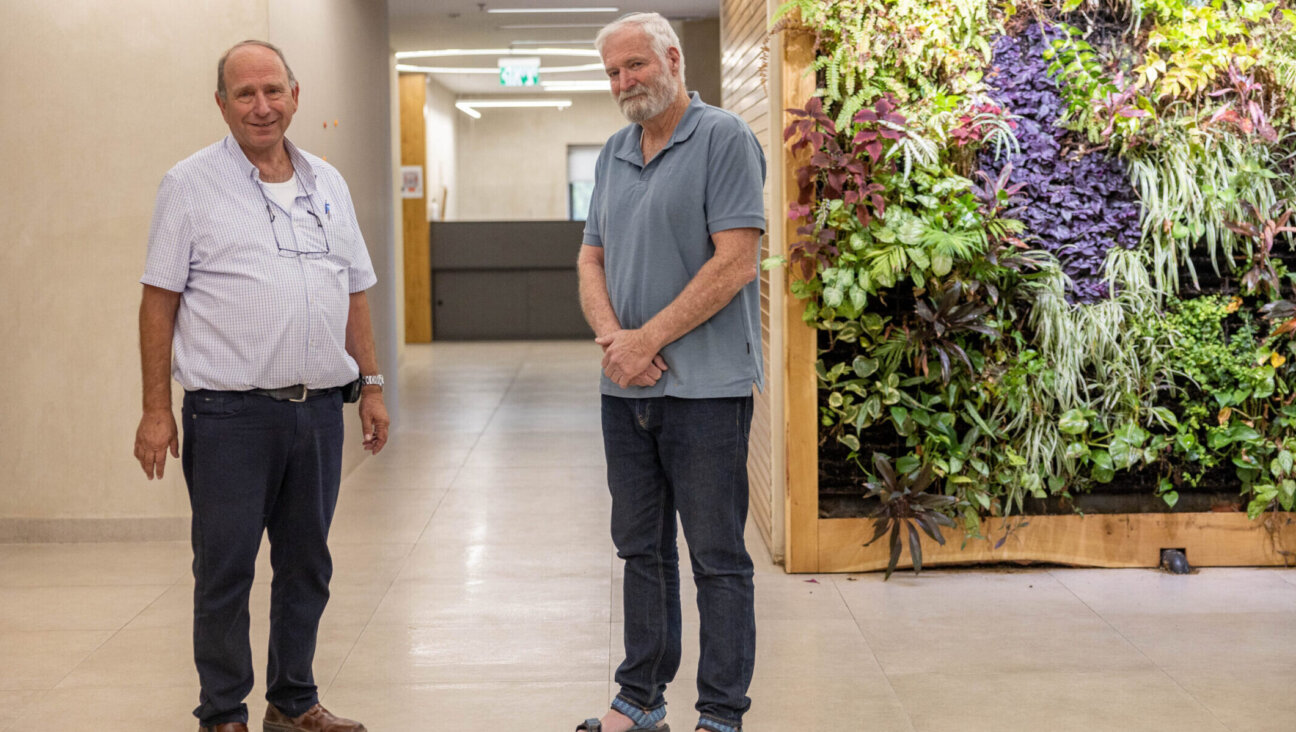February 18, 2005
Privatized Religion
Thank you for showing us a new side of Gary Bauer: comedy writer (“It’s ‘One Nation Under God,’ or America Goes Under,” February 11). I especially enjoyed the line, “Is it a coincidence that as Europe’s churches empty, its antisemitism and hatred of Israel grow?” Hysterical. Because of course nothing bad ever happened to the Jews when Europe’s churches were full or, say, when the Church actually ran Europe.
Kidding aside, I can’t understand why the Forward is willing to provide someone like Bauer with a forum. I believe that the vast majority of American Jews would agree that secularity in American government is the greatest thing to happen to us since sliced challah. I do not need to hear Ronald Reagan, George W. Bush or any president talk about God. The more privatized religion is in this country, the better it is for us. If only right-wingers like Bauer felt the same way about religion as they do about privatizing Social Security.
The way Bauer suggests religious Christians are being persecuted is totally absurd. The overwhelming majority of Americans are Christian; how could they be persecuted by the “secular media” unless they actually want to be?
Scott Egolinksy
New York, N.Y.
Sustained Learning Key
Opinion columnist Leonard Fein is right to turn attention to after-school and Sunday Hebrew schools (“Back to School on Education,” February 11). That is where many Jewish children are, and we have missed far too many opportunities to infuse them with an appreciation of Judaism and what it can mean for their everyday lives.
But the problems are not technical, which is why the Hebrew-language debate never subsides. We know how to teach language. What we don’t know is how to sustain that learning when the language is not used.
This problem replicates itself with regard to Jewish history, prayer and, for most children, Shabbat observance. Children can learn about the importance of minyan, but it will not stick if they rarely come to synagogue to help make a minyan.
It takes a community to raise a mensch. In the absence of a supportive community, including parents and congregants, children are unlikely to take to heart what they have learned and put it into everyday practice.
This does not mean that children are not learning. However, when there is a community that values and reinforces that learning, there is greater success. Schechter schools have a larger potential to establish that community, but my conversations with several day-school leaders around the United States suggests that these schools, too, suffer from an influx of parents whose commitment to the dual curriculum — and especially the Judaic part — is not as strong as most educators would like to see to ensure that learning in their schools will last.
Creating cohesive Jewish communities is the primary challenge, far more so than techniques and pedagogy, for the education of our children.
Maurice Elias
Department of Psychology and Jewish Studies
Rutgers University
New Brunswick, N.J.
Movement Is Consistent
The fallacy of Rabbi Ayelet Cohen’s February 11 opinion article occurs, ironically, at the very end of the piece, where she quotes from the Torah portion (“The Conservative Movement’s Double Standard”). She is correct in noting that the mishkan was built with the gifts of “each member of the community.” What she fails to realize is that participation and leadership are not synonymous.
While the Conservative movement seems wishy-washy on a host of issues, including the treatment of gay and lesbian Jews, they have been surprisingly consistent in their exclusion of this community from leadership roles. In the end, Cohen’s wish will come true. The Conservative movement will comply on the leadership question, as it always follows the Reform movement after some lag time. However, let’s not mistake the lack of compelling vision or leadership of the movement with their anticipated ruling on “inclusiveness.”
Jeffrey Korbman
Highland Park, N.J.
A message from our CEO & publisher Rachel Fishman Feddersen

I hope you appreciated this article. Before you go, I’d like to ask you to please support the Forward’s award-winning, nonprofit journalism during this critical time.
We’ve set a goal to raise $260,000 by December 31. That’s an ambitious goal, but one that will give us the resources we need to invest in the high quality news, opinion, analysis and cultural coverage that isn’t available anywhere else.
If you feel inspired to make an impact, now is the time to give something back. Join us as a member at your most generous level.
— Rachel Fishman Feddersen, Publisher and CEO























